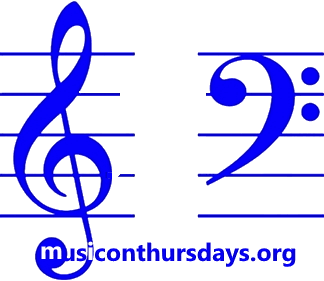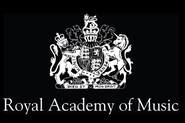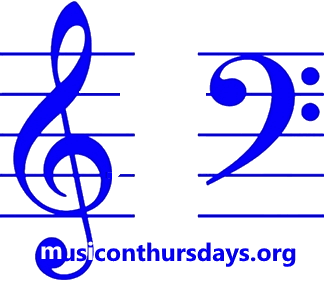Ye Bon Jeong
violin
Leon Chen
piano
Programme
Johannes Brahms (1833-1897)
Violin Sonata No 3 in D minor, Op108 (1886-88)
I Allegro
II Adagio
III Un poco presto e con sentimento
IV Presto agitato
Richard Georg Strauss (1864-1949)
Violin Sonata in Eb major Op 18 (1887)
I Allegro, ma non troppo
II Improvisation: Andante cantabile
III Finale: Andante - Allegro
courtesy of the Royal Academy of Music
Concert duration approx: 50 minutes
Please donate to help fund these concerts at: cafdonate.cafonline.org/14455
Ye Bon Jeong
Ye Bon Jeong is a consistent, flourishing young violinist and musician. Born Korean and of Hungarian background, she is now London based and is always eager to surround herself with new challenges.
She has studied violin with Eszter Perényi at the Liszt Academy, Elizabeth Kropfitsch at the MDW Vienna, Michael Foyle at the Royal Academy of Music and currently
with Alex Redington for her masters degree. She also studies the viola with the mentoring of James Sleigh.
Currently she is involved with the Academy Symphony orchestra projects, and also has a deep passion for chamber music. She has worked with various instrument groups and colleagues in which she showed her understandment of ensemble work.
Ye Bon has also been involved with events outside the academy. She has been a
continuous member of the student lead Campanella orchestra, in which they have performed most recently with soloist Charles Lovell-Jones.
She has been part of the Anonimi Orchestra with Margarita Balanas, in which young female artists gather to bring out works of unjustly hidden composers and push boundaries together. She has also had opportunities to work with the London Youth String Orchestra in which she played Piazzolla's Autumn celebrating the composer’s centennial.
Other chamber music activities include the salon concert in which she and her colleagues from Japan and Hungary performed in Budapest, summer of 2020 and 2021. Alongside her ensemble and solo playing, she is interested in teaching. She has enrolled and has been certified in the LRAM course at RAM, and she seeks every opportunity to express and share her international background through music.
She has studied violin with Eszter Perényi at the Liszt Academy, Elizabeth Kropfitsch at the MDW Vienna, Michael Foyle at the Royal Academy of Music and currently
with Alex Redington for her masters degree. She also studies the viola with the mentoring of James Sleigh.
Currently she is involved with the Academy Symphony orchestra projects, and also has a deep passion for chamber music. She has worked with various instrument groups and colleagues in which she showed her understandment of ensemble work.
Ye Bon has also been involved with events outside the academy. She has been a
continuous member of the student lead Campanella orchestra, in which they have performed most recently with soloist Charles Lovell-Jones.
She has been part of the Anonimi Orchestra with Margarita Balanas, in which young female artists gather to bring out works of unjustly hidden composers and push boundaries together. She has also had opportunities to work with the London Youth String Orchestra in which she played Piazzolla's Autumn celebrating the composer’s centennial.
Other chamber music activities include the salon concert in which she and her colleagues from Japan and Hungary performed in Budapest, summer of 2020 and 2021. Alongside her ensemble and solo playing, she is interested in teaching. She has enrolled and has been certified in the LRAM course at RAM, and she seeks every opportunity to express and share her international background through music.
Leon Chen
Born in Auckland, New Zealand, 23-year-old pianist/conductor Leon Chen is a final-year Master of Music degree student at the Royal Academy of Music.
His professional studies began in 2018 when he was admitted to the Academy with the Gill Culpin Scholarship Award, where he studied under the guidance of pianist Mei-Ting Sun, with second-study conducting under Sian Edwards and Dominic Greir.
His adept sight-reading and aural skills, conducting experiences as well as piano maintenance from years of working in the Academy’s Museum, he took on frequent chamber engagements, recitals as well as orchestral projects around London and Europe, such as the Academy’s Summer Piano Festival and Manson Ensemble, the Savolinna Music Festival in Finland and Virtuoso Belcanto in Italy.
He also works as a repetiteur with Carshalton Opera and Glyndebourne Opera, and was invited as a guest artist for the 2019 London young Talent Festival and the 2020 London Chinese New Year Gala.
In 2022 he completed his Bachelor of Music, receiving first-degree honours from the Academy, and was awarded the Accompanist’s Prize for his performance during the Bicentenary awards in the Wigmore Hall in the following year.
In his hometown, Leon’s active presence, prior to his move to London, saw him winning the first Asia-Pacific Musician Association competition, the LECT Alice Cole Scholarship, and Joint winner of the 2019 New Zealand National Concerto Competition. More recently, he received the Arts Excellence Award from the Dame Malvina Major Foundation to further support his Master’s studies.
His professional studies began in 2018 when he was admitted to the Academy with the Gill Culpin Scholarship Award, where he studied under the guidance of pianist Mei-Ting Sun, with second-study conducting under Sian Edwards and Dominic Greir.
His adept sight-reading and aural skills, conducting experiences as well as piano maintenance from years of working in the Academy’s Museum, he took on frequent chamber engagements, recitals as well as orchestral projects around London and Europe, such as the Academy’s Summer Piano Festival and Manson Ensemble, the Savolinna Music Festival in Finland and Virtuoso Belcanto in Italy.
He also works as a repetiteur with Carshalton Opera and Glyndebourne Opera, and was invited as a guest artist for the 2019 London young Talent Festival and the 2020 London Chinese New Year Gala.
In 2022 he completed his Bachelor of Music, receiving first-degree honours from the Academy, and was awarded the Accompanist’s Prize for his performance during the Bicentenary awards in the Wigmore Hall in the following year.
In his hometown, Leon’s active presence, prior to his move to London, saw him winning the first Asia-Pacific Musician Association competition, the LECT Alice Cole Scholarship, and Joint winner of the 2019 New Zealand National Concerto Competition. More recently, he received the Arts Excellence Award from the Dame Malvina Major Foundation to further support his Master’s studies.
Recordings of the works in today's concert
Johannes Brahms (1833-1897)
Violin Sonata No 3 in D minor, Op108 (1886-88)
I Allegro
II Adagio
III Un poco presto e con sentimento
IV Presto agitato
See whether you agree with Desiré Howland's assessment of the recording that follows:
"The funny thing (not funny, ha, ha), but an unexpected unusual approach "funny amazing", is that when watching maestro Kavakos play, I realize he never had a competent violin teacher. He holds the body and the bow in a handicapped left hand wrist manor and squints out of the corner of his eyes to read the score.
To listen to the playing, however, one can actually understand that the music is his professor. Each phrase is studied and each technical demand is calculated to precision. The lack of a common and most disturbing "quiver" in his vibrato (which others deem to be expressive, when it actually detracts from the music) gives Leonidas a smooth singing quality which does honour to Brahms: Not making it a circus act like so many we see and don't wish to hear today.
Ms Wang's delicate, yet emphatic when called for, touch puts the piano where it belongs. It is no longer the "Brahms Sonata for Violin -v- Piano"!
The engineer's approach of slightly muting the top end of the piano's harshness helps in hiding the out-of-tune temperament making it a true "Duet".
BRAVO everyone involved in this. I wish I could have been there."
We hear then, Leonidas Kavakos and Yuja Wang:
Violin Sonata No 3 in D minor, Op108 (1886-88)
I Allegro
II Adagio
III Un poco presto e con sentimento
IV Presto agitato
See whether you agree with Desiré Howland's assessment of the recording that follows:
"The funny thing (not funny, ha, ha), but an unexpected unusual approach "funny amazing", is that when watching maestro Kavakos play, I realize he never had a competent violin teacher. He holds the body and the bow in a handicapped left hand wrist manor and squints out of the corner of his eyes to read the score.
To listen to the playing, however, one can actually understand that the music is his professor. Each phrase is studied and each technical demand is calculated to precision. The lack of a common and most disturbing "quiver" in his vibrato (which others deem to be expressive, when it actually detracts from the music) gives Leonidas a smooth singing quality which does honour to Brahms: Not making it a circus act like so many we see and don't wish to hear today.
Ms Wang's delicate, yet emphatic when called for, touch puts the piano where it belongs. It is no longer the "Brahms Sonata for Violin -v- Piano"!
The engineer's approach of slightly muting the top end of the piano's harshness helps in hiding the out-of-tune temperament making it a true "Duet".
BRAVO everyone involved in this. I wish I could have been there."
We hear then, Leonidas Kavakos and Yuja Wang:
Richard Georg Strauss (1864-1949)
Violin Sonata in Eb major Op 18 (1887)
I Allegro, ma non troppo
II Improvisation: Andante cantabile
III Finale: Andante - Allegro
In this recording we hear Leonidas Kavakos, this time performing with Daniil Trifonov. This is an opportunity to follow the score.
There is a video recording of this performance on YouTube, but a little way in you will have to close your eyes because the sound and images go out of sync - which is quite off-putting:
Previous concert
1 August 2024 - Concert for a Birthday, Piano à Deux, Linda Ang Stoodley, Robert Stoodley - click here
Next concert
15 August 2024 - James Akers - 19th century guitars - click here








